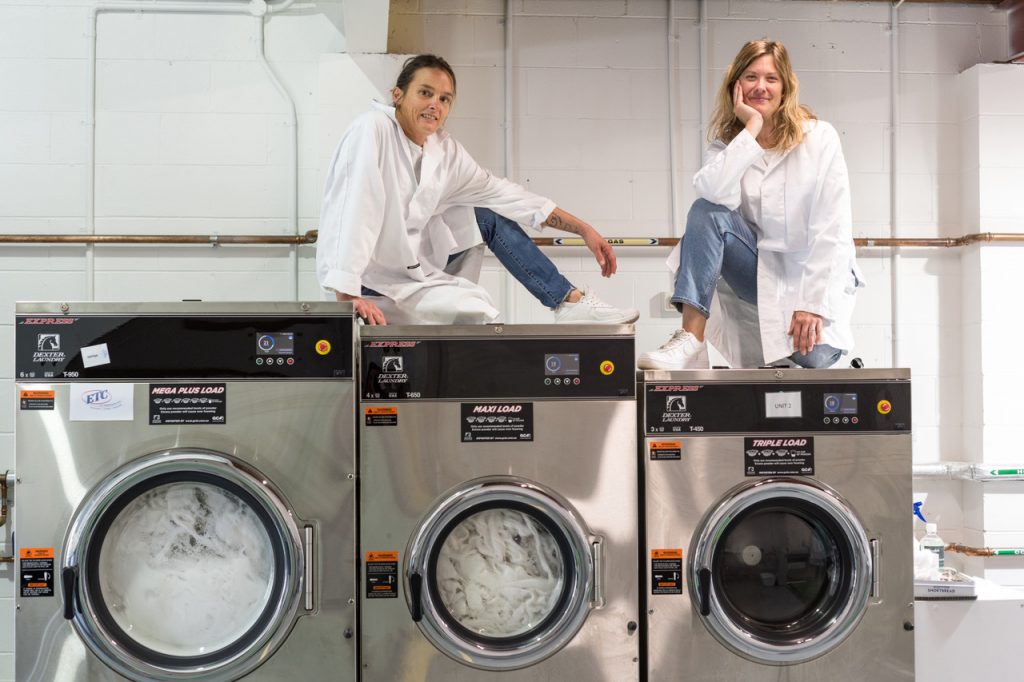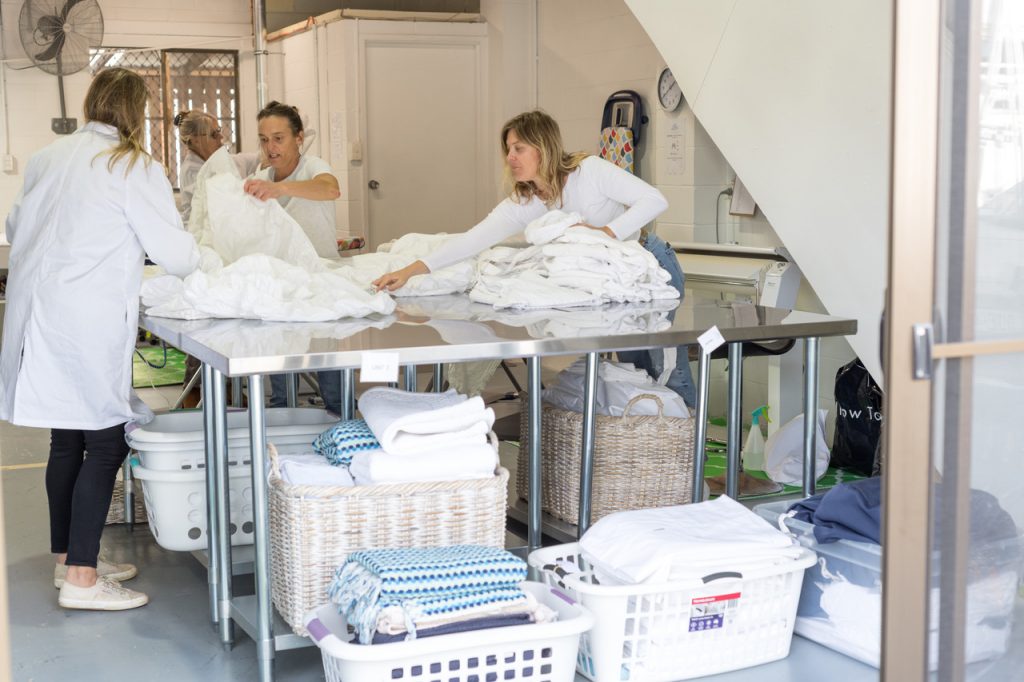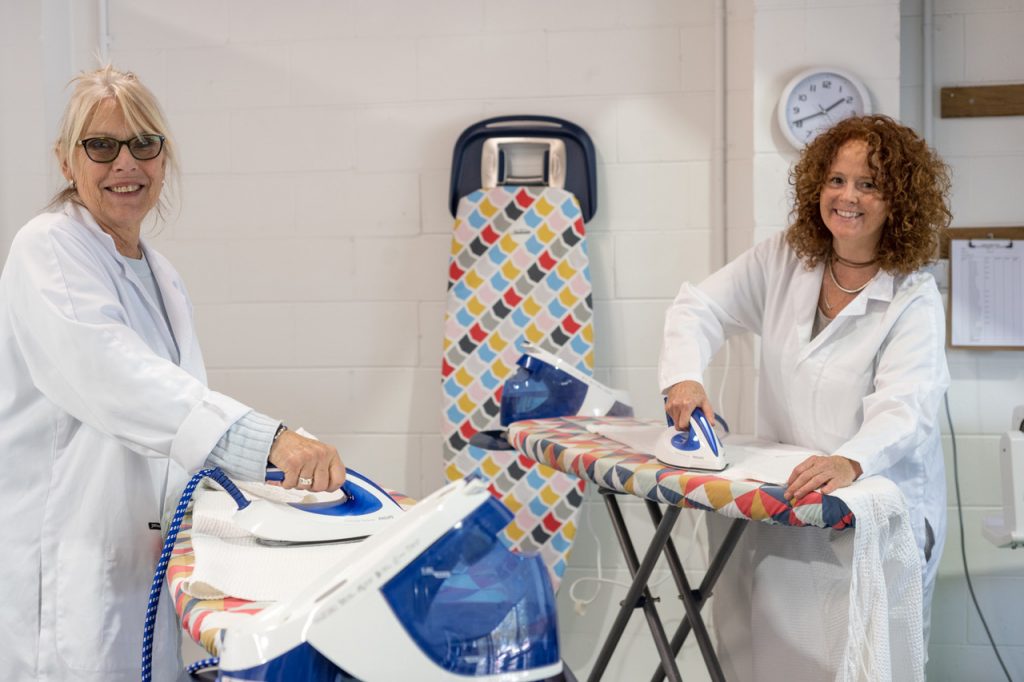Foundation for Rural & Regional Renewal (FRRR)
$200,000 available to fund community-led mental health projects
Remote, rural and regional communities across Australia can apply now for grants through FRRR’s In a Good Place (IAGP) program to support community-driven activities focused on mental health and wellbeing. Offered in partnership with CCI Giving, there is $200,000 available through grants of up to $20,000 for projects that support vulnerable community members at risk of, or experiencing, mental health issues.
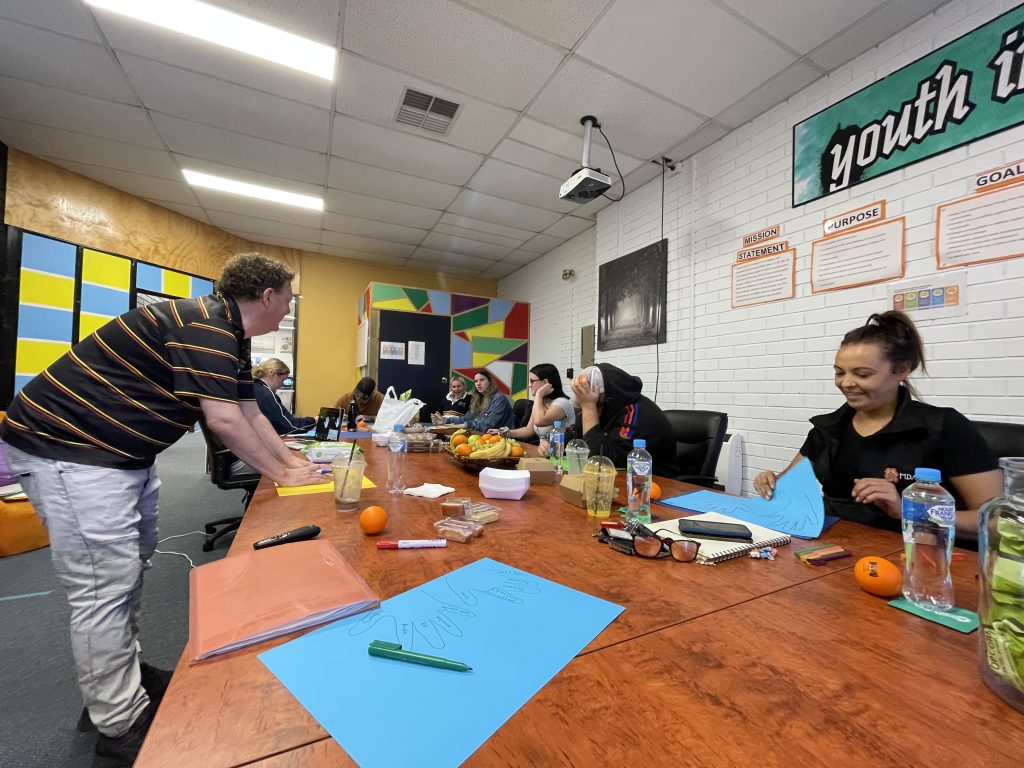
The program supports a range of approaches that are preventative or responsive in nature, and clearly and directly focus on strengthening mental health and wellbeing. These include initiatives that increase social participation and connections with the community, and reduce stigma surrounding mental health by encouraging open discussion and supporting self-help-seeking.
Jeremy Yipp, CCI Chief Risk Officer and Chair of CCI Giving, said that greater access to mental health services and support is vital to those living in rural communities, particularly following times of crisis.
“Rural and remote communities continue to be affected by events such as fires and flooding, and in recent years the pandemic. It’s more important than ever to encourage people to stay connected and seek support, especially for those living in places with limited access to mental health services.
“Our partnership with FRRR helps CCI Giving reach remote, rural and regional communities, to build and nurture social connections and community participation, and provide access to mental health training and education,” said Mr Yipp.
Jill Karena, FRRR’s People Programs Portfolio Lead, said that the events of the past few years have highlighted the need for rural Australia to have equitable access to mental health services and support.
“The impact of the pandemic, and the subsequent isolation, is still being felt and understood. But clearly, access to mental health tools, services and support that are driven by community need, are critical to improving and strengthening the mental health of remote, rural and regional Australians, particularly younger members of the community.
“As an example, through the IAGP program, the Youth Affairs Council Victoria (YACVic) in Swan Hill received funding of $13,480 to deliver a culturally specific Mental Health First Aid (MHFA) training program and establish a local support network – Deadly Yarning & Learning, targeting Aboriginal and Torres Strait Islander young people.
“Although initially intended to be delivered face-to-face, the COVID pandemic and lockdowns caused serious disruptions to the project. Instead, most training took place online. Aboriginal and Torres Strait Islander young people gained vital skills in MHFA, connected with each other, relevant workers and service providers, and increased their confidence and leadership skills while helping to shape local, culturally safe responses to mental health.
“Our partnership with CCI Giving means we can support these kinds of community-led approaches to mental health services that respond to community need and are accessible for people in rural areas who may otherwise have difficulty accessing services,” Ms Karena said.
Applications open on 20 April 2022. As in previous years, FRRR expects this will be a highly competitive program and so there is a two-stage application process. A brief Expression of Interest must be submitted no later than 5pm AEST, Wednesday 25 May 2022. The Expression of Interest form and more information is available on FRRR’s website – https://frrr.org.au/funding/place/in-a-good-place/. Applicants can also call 1800 170 020.
The IAGP program is the centrepiece of a partnership between FRRR and CCI Giving which has just been extended for a further five years, to run until 2027. Since the partnership began in 2018, IAGP has awarded $800,000 in grants to 53 community-led initiatives that promote good mental health and wellbeing in remote, rural and regional communities.
Arakwal Country
Founded in 2015, The SHIFT Project Byron is a short-term educational transition program for women who are homeless or at risk of homelessness. Five staff, 12 volunteers and a governing committee of seven oversee the program that supports women navigate the challenges from homelessness to independence.
Lack of financial stability and economic independence are major factors contributing to homelessness, and SHIFT wanted to disrupt these persistent challenges in the Byron area, increase financial wellbeing, employability, and community connection through their new project – The Linen SHIFT.
The Linen SHIFT is an innovative social enterprise laundry service, providing transitional employment coupled with training, mentoring, and skill development to help disadvantaged women sustainably enter the workforce. Programs run for between three and 12 months, adapting to the unique needs of individual women, including employment offers / shift times for mothers and accommodating physical capability. Community connections are fostered through the CWA, and SHIFT employs a qualified support worker to assist participants to achieve their individual goals, address housing needs and underlying hardships.
The SHIFT Project applied to the ANZ Seeds of Renewal grant program at a critical point in its growth. The program was running as a small-scale, in-house opportunity for homeless women living at the SHIFT Project’s residential property in Byron Bay. The social enterprise model will allow for the program to be sustainable and self-funded in the long-term, but they needed initial funding to expand and relocate to a commercial venue, to meet increasing demand for participation from local vulnerable women. Several funders contributed to the project, including FRRR’s $14,265 grant to purchase an ironing roller.
The program successfully launched in March 2020 and thrived during the uncertain times of COVID. Fourteen women were employed over 10 months and provided with income and stability. The program has been supported by regular customers, and the business has been at capacity and is now planning to expand.
Letters of support from clients of SHIFT give glowing reviews about its management and impact. Elizabeth Jackson, President of Liberation Larder wrote: “The SHIFT Project has shown they are intelligent, creative, hard-working & reliable in their approach to growing their service for the benefit of women at risk of homelessness. With each new project they add to the social fabric of our community.”
The SHIFT Project takes pride in the community they have created, and with very good reason.
“Our women have provided feedback that since joining our team they feel safe, connected, encouraged and valuable – directly addressing the isolation and low self-esteem that poverty can generate.”
Anne Goslet, Managing Director The Linen SHIFT
And they are set to make an even bigger impact, with projections that in five years the project could support upward of 100 women to shift from disadvantage to independence.
Wiradjuri Country
The transition from teenager into adulthood is widely acknowledged as a tough one. As we leave behind childhood and enter our formative years, a greater sense of responsibility, identity and independence can be extremely overwhelming for some. For those living in remote, rural, and regional Australia, this new life-stage can be even more daunting, especially as many young people are forced to move out of familiar environments to further their education or find employment.
Wagga Wagga, in the Riverina region of New South Wales, currently has around 11,800 young people living in the area. While Wagga Wagga has a lot to offer its younger residents, from education to a vast range of sporting clubs, the youth unemployment rate sits at 11.6% (2016 Census data).
With a large portion of the population transitioning from adolescence into adulthood, headspace Wagga Wagga wanted to help make the process a bit easier.
Partnering with local organisation Youth Reference Group (YRG), headspace Wagga Wagga developed a program called “Adulting”, based on an idea developed at the Heywire Regional Youth Summit. The YRG is an active group of individuals aged between 16-25 who dedicate their time to issues that impact young people’s mental health. Through a mix of brainstorming and lived experience, the group was able to identify 10 aspects of adult life they wished they knew more about before they had to deal with the issues. The list included the voting process, understanding tax and superannuation, the maintenance of rental properties (including cleaning), organising healthcare (both private and public), the job interview process and making important appointments.
Using a $7,000 FRRR ABC Heywire Youth Innovation grant, funded by The Sally Foundation, headspace Wagga Wagga and YRG were able to hire a videographer to help produce a video for each topic, which was then distributed on social media.
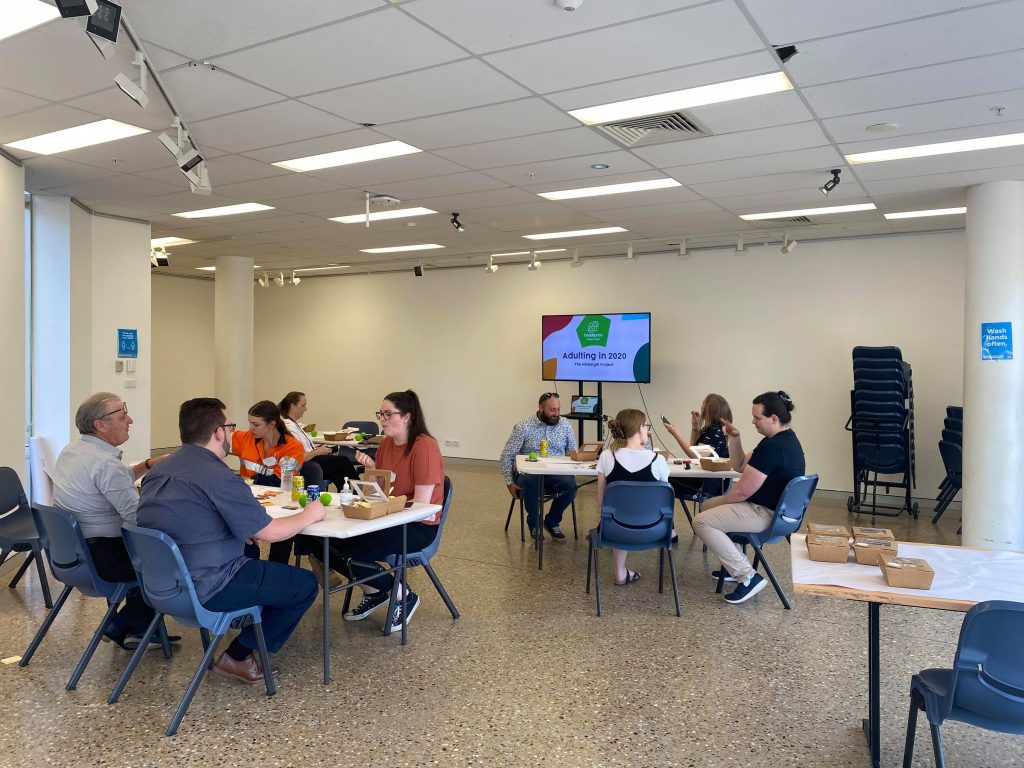
The videos were released over 10 weeks, via a Facebook page moderated by the YRG team. The “Adulting” videos reached 500 young people who now have resources to build practical life skills.
At the end of the program, the “Hindsight Project” took place for the ten young people who were instrumental in creating and curating the content. This provided an opportunity for reflection and discussion about the project and also a chance for networking.
COVID-19 restrictions made promoting the videos and authentic engagement with the content challenging. However, with the content still online and available for those who need it, the videos will continue to reach young people and provide them with tips and advice for their big move into adulthood.
In Coorow, WA, a rural town 270 km north of Perth, the community had been shaken by a series of tragic mental health incidents.
The township has a population of just 200 and is the business and social hub for many small surrounding localities in an area dominated by farming. The agriculture industry in WA’s mid-west is changing, with businesses amalgamating so that the family farm is now often part of a larger enterprise. Businesses rely more on casual workers, reducing the local population and increasing isolation, due to greater distances between farming families.
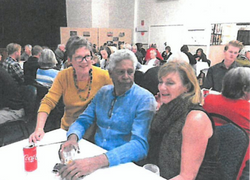
Coorow Community Resource Centre (CCRC) is a local organisation providing professional services to the community, and they clearly saw the need for more informal, activity-based gatherings to support the local community thorough a challenging time.
The In a Good Place program was the perfect fit to support this group in their aims. They successfully applied for a grant of $10,350, funded by CCI Giving, and got to work planning a series of motivational community dinners to encourage the Coorow community to come together for shared learning and social interaction.
The FRRR grant enabled the group to engage guests speakers for the ‘On Speaking Terms’ event – ordinarily the high cost of travel would reduce access to such talent, and guest speakers Peter Rowsthorn, Ernie Dingo and Karl O’Callaghan were a special drawcard to get the community together. The events were held at the Coorow District Hall in March, July and October 2019, on dates that worked within the local farming activities timetable for the people of the Shire of Coorow and surrounding shires of Perenjori, Carnamah and Moora.
Each event in the series also included presentations from mental health services in the region such as Wheatbelt Mens Health, Midwest Health service and the Desert Blue organisation. Dinners were catered by the CCRC and four school students from the area volunteered as wait staff. A ‘goodie bag’ was given to attendees to take away, including a Health Services in the area booklet compiled by the CCRC. The evenings were advertised and reported on by local newsletter, the Coorow Magpie Squawk.
Deborah Maley, Coordinater at CCRC said, “The Coorow CRC achieved everything we set out to with this program. We delivered three evenings with high profile speakers and had an amazing attendance to each and every one.
“Each speaker had a different way of putting forward their message and this meant that everyone could relate in different ways. All speakers created conversations within the attendees and also with the community as a whole.”
The group expected they might get 100 attendees to the event, but their smart plan enticed 224 people to attend the series, a remarkable outcome for a town of just 200 people. They have since reported that health agencies represented at the dinners have been contacted by community members following the info sessions, so they are hopeful that the message is reaching some of those local people that will benefit from mental health support.
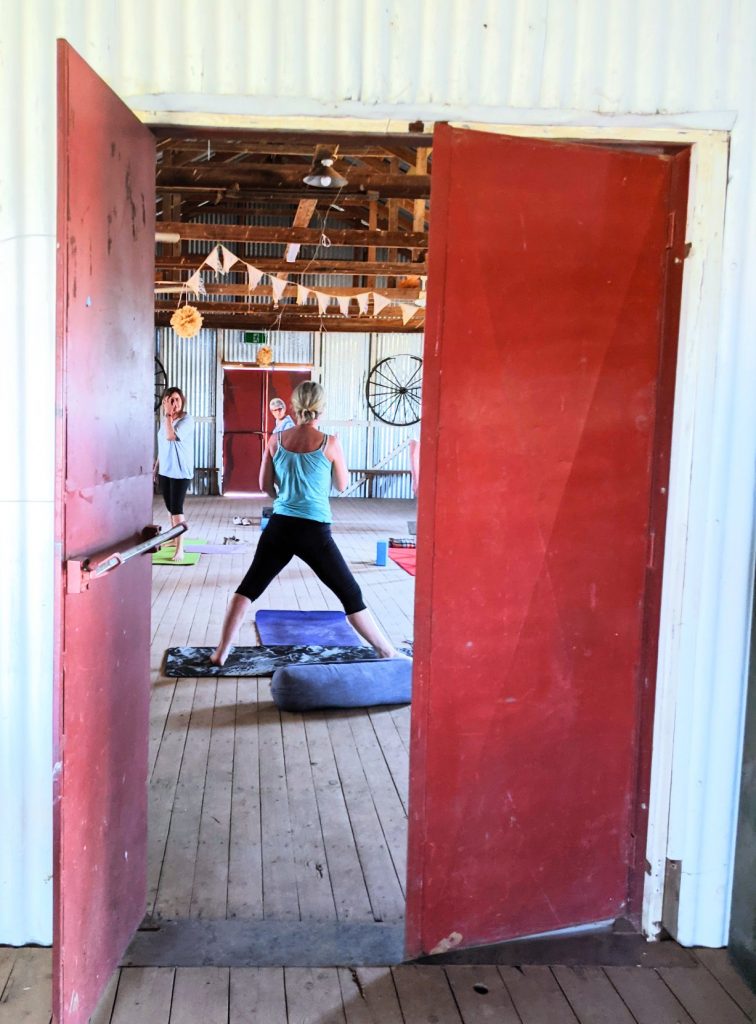
In the Bogan Shire of New South Wales, you will find the town of Nyngan. Like many remote farming towns, social isolation is a big issue within the community. Farmers and their families have had to deal with the effects of drought for years, placing extreme pressures on many people and businesses in the community. Financial pressure can often be a driving force behind social isolation in these communities. Social events and participation can be some of the first things to go when trying to save money. This can create a bigger divide for many adults, particularly farmers and their families, in the town.
CatholicCare Wilcannia-Forbes (CCWF) was established in 1996 and covers 52% of Western New South Wales. Their diverse programs offer support for parents and children, counselling, help with financial management, mental health services and programs specifically for men, Indigenous communities, and young people.
In partnership with Bogan Bush Mobile, CCWF created The Wellbeing Mobile, which included travelling out to small communities and isolated properties within a 130km radius of Nyngan, providing an outreach service for mental and emotional wellbeing for adults. This program was based on the success of the Bogan Bush Mobile early childhood education sessions, which focused on children aged 0-5. This new program was dedicated specifically to help support the adults and parents within the community.
A $150,000 Tackling Tough Times Together grant allowed CCWF to visit 11 towns over two years, and offer fortnightly two hour sessions ranging from remedial massage, yoga, exercise and nutrition, to body alignment, pilates, art therapy, counselling, clinical hypnotherapy, financial counselling and community wellbeing days.
The response to The Wellbeing Mobile was fantastic, with 300 people benefiting directly from the activities, and many more family members benefiting indirectly. The sessions were designed to help fight “drought fatigue” by giving families a break from the stressful and anxious period caused by drought and social isolation. In particular, the sessions were a big hit with mothers in the community. Bogan Bush Mobile early childhood education kept young children entertained while their mothers were able to enjoy the social interaction and the relaxing activities.
Organising these events to avoid shearing and harvest time was important in the sessions achieving high participation rates. Accommodating people that needed to travel was also an issue. To solve this problem, introducing Activity Days allowed some people to experience several activities during the day. Having multiple activity sessions over the duration of the project gave residents more opportunities to participate if they were unable to attend a class.
Executive Leader of Program Development and Delivery, Dorothee Crawley said “The feedback was fantastic, with one lady saying she had lived on her farm for 20-years and this was the first time she had interacted with her neighbours. The Wellbeing Day provided services that had never been available in the town before, and everyone thanked us for organising this event in their community.”

